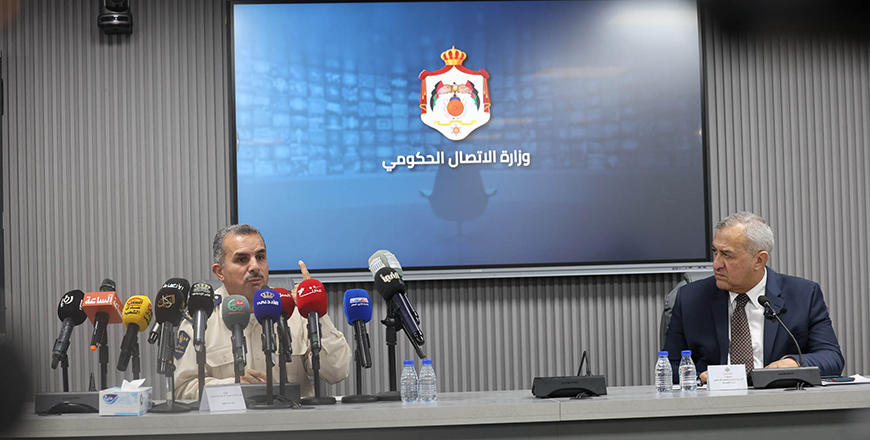AMMAN — Faced with a “record-breaking” volume of customs activity, Jordan Customs Department (JCD) is undergoing reforms aimed at improving efficiency, transparency and investor confidence, JCD Director-General Maj. Gen. Ahmad Akalik said on Wednesday.
Speaking at a government communications forum titled "Achievements of the Jordan Customs Department", Akalik said that the department processed more than 950,000 customs declarations in 2024, figures he described as a "compelling reason" to adopt new working methods in line with the best global practices and digital transformation.
"These changes are not cosmetic. They reflect His Majesty King Abdullah’s vision to modernise public services and empower the private sector," he said as reported by the Jordan News Agency, Petra.
Akalik revealed that 91 per cent of tariff lines are fully or partially exempted from customs duties, mainly raw materials that are essential for local production, noting that only 9 per cent of items are subject to tariffs ranging from 0 to 25 per cent, and national exports are completely exempted.
"These exemptions aim at reducing production costs, increasing competitiveness and creating a more attractive environment for local and foreign investment," he said, stressing that the remaining tariffs are structured to protect domestic industries.
He also highlighted that the JCD continues to regularly review its policies to align them with national development goals, highlighting that the reforms are part of a broader economic modernisation drive aimed at positioning Jordan as a “productive, export-oriented” economy.
Addressing speculation about the reopening of the Ramtha customs centre, Akalik pointed out that any decision would have to be coordinated with Syrian authorities and that the issue was not currently under consideration.
He also noted that the old Amman Customs Centre has not been completely vacated, with some departments, such as foreign vehicle registration and customs licensing, still operating on site.
Highlighting the department's efforts to banking on infrastructure upgrades and technological innovation to cement Jordan's position as a regional logistics hub, he said that the new Amman Customs Centre in Madouneh, which covers 950 dunums, can accommodate inspections of up to 192 trucks at a time and features “state-of-the-art” AI-driven systems.
Akalik added that the changes will also benefit Jordan's development and industrial zones, whose products will now be treated as national goods, simplifying market access and reducing logistical bottlenecks.
Among the most significant reforms are amendments to the Customs Law, which will shift from a pre-clearance inspection model to post-clearance audits, the director-general said.
This shift will allow compliant traders to obtain immediate release of goods while preserving the authority of the department to verify documentation at a later date, a move Akalik described as a "game changer" for trade facilitation.
The department is also using artificial intelligence to improve risk management, analyse data and replace manual inspections with remote monitoring systems, he said.
According to Akalik, this move is crucial to improving transparency and closing the door to fraud and manipulation.
Noting that the JCD has already received international recognition for its efforts, he said that the department won the King Abdullah II Excellence Award for e-services, and the World Customs Organisation has adopted its model as a global reference.
Despite the progress, Akalik acknowledged that one of the biggest challenges is changing the culture around customs operations within the department and among stakeholders.
He noted that to address this, the department plans to launch public awareness campaigns to explain the benefits of the new systems.
Supporting the department's vision, Secretary-General of the Ministry of Government Communications Zaid Nawaisah said that the JCD has emerged as a national leader in streamlining trade, stimulating the economy and promoting a fair business environment.
"The ministry has a critical role to play in highlighting these successes and building public confidence in government institutions," Nawaisah added.
